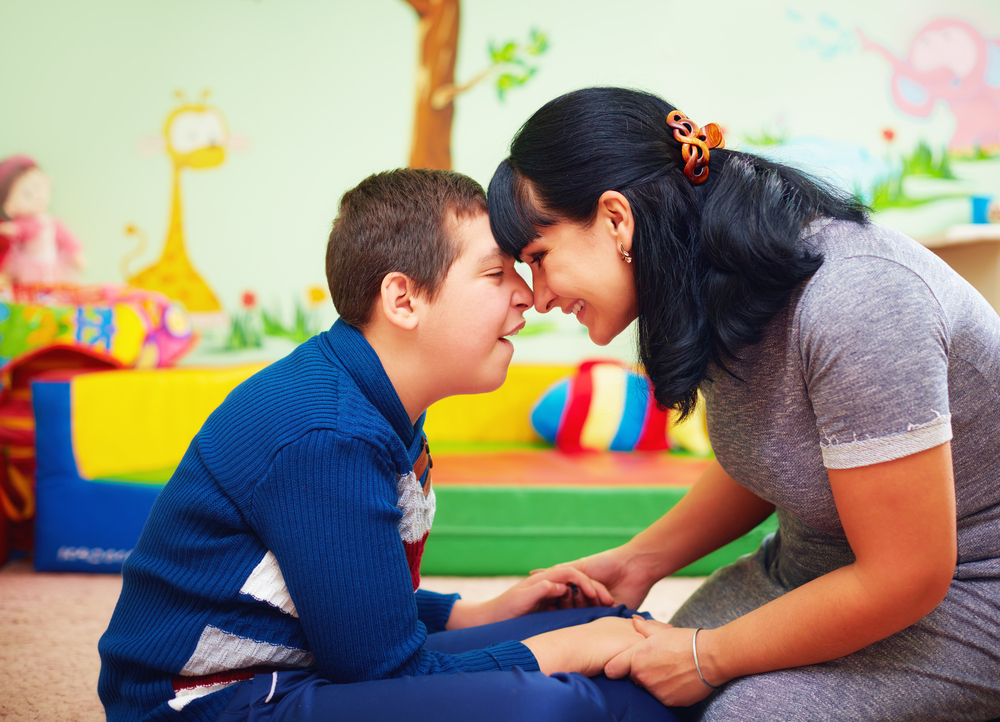Contents:
- Medical Video: History and Characteristics of Learning Disabilities
- Is that a mentally disabled child?
- What are the characteristics of mentally disabled children?
- What causes this condition?
- Here are some problems that can cause intellectual disability
- How to diagnose this condition?
- Helping mentally disabled people with special means of independence
Medical Video: History and Characteristics of Learning Disabilities
Impotence or the general public, often referred to as people with mental retardation, is a condition in which a person has intellectual abilities below the average. This can happen to anyone, including children. What are the characteristics?
Is that a mentally disabled child?
Mentally disabled children generally have intellectual function difficulties. For example, such as difficult to communicate and learn and difficult to solve problems. Childbirth in children can occur at a mild or more severe level.
Children who are in severe condition, usually need more support at school or at home. Whereas children with milder conditions and still able to do independent skills, generally only need a community with good teaching and support. There are many schools, activities and assistance available to help these children as they grow up to become adults.
Since 2010, as recommended by the American Academy of Pediatrics, the use of the term "mental retardation" is no longer used. They chose to refer to children with this condition as "intellectual disabilities". The expression of mental retardation is considered inappropriate, offensive, and does not represent the purpose of the condition of the mentally disabled.
What are the characteristics of mentally disabled children?
Children who are also often referred to as children with special needs have several observable characteristics. Characteristics of a child having intellectual disability are generally ways of learning and their ability to develop more slowly than other children. Children with intellectual disabilities will usually have difficulty learning and carrying out activities in daily life.
Some of the traits that can be seen from children with mental impairments include:
- Sit, crawl, or walk more slowly than other children his age
- Having trouble speaking
- Having difficulty understanding social rules
- Having difficulty in controlling his attitude or movement
- Difficult to solve problems
- Difficult to think logically
For example, 10-year-olds with mental impairments usually cannot speak or write. In fact, for normal children, writing and speaking should be possible.
Children with this condition are generally also slower to learn other skills, such as it is difficult to dress alone or do not understand how to react when interacting with others.
Even though it is often characterized by a condition of learning progress that is late, it does not mean that children with this condition cannot learn, you know. They can still learn, but at different speeds and ways. Some people with autism, down syndrome,or celebral palsy there are also many who are like other children.
What causes this condition?
This condition of intellectual disability generally occurs because the brain is injured. This injury causes the brain to not develop normally. This can occur since in the womb, during birth, or even after the baby is born.
Here are some problems that can cause intellectual disability
- There is a problem with the baby's genetics. Generally, the baby's genetic makeup is inherited from both parents, so the baby may receive an abnormal gene or the gene may change when the baby develops in the womb
- There is a problem during pregnancy. Sometimes, the mother may get an illness or infection that can harm the baby during pregnancy.
- Take medication without a doctor's supervision. Taking certain drugs while pregnant can cause problems for the baby. For this reason, consult a doctor before taking any type of medicine while pregnant. Drinking alcohol or taking illegal drugs can also damage the brain of a developing baby.
- Babies don't get enough oxygen during labor.
- Babies born prematurely
- After birth, babies get serious brain infections.
- Serious head injuries in infants can cause intellectual disability. Some damage is temporary, but it can also be permanent. (That is why it is very important to wear a bicycle helmet on a child, seat belt, and look after other parts to avoid head injuries.
The doctor will diagnose the problem of intellectual disability in this child by measuring how far the person's ability to think and solve problems. If indeed it seems odd, doctors and other medical personnel can provide recommendations to your family regarding the type of assistance the child needs.
How to diagnose this condition?
A child is said to be mentally disabled if he has an IQ (Intelligence Quotient) who are very low and have problems in carrying out their daily activities. That's why IQ tests are used as a way to diagnose this disease.
This IQ test aims to measure learning skills and solve a child's problem. Generally, a normal IQ score is around 100. Children with intellectual disabilities generally have a low IQ score, which is below 50 and has the highest score at 75.
Usually, children cannot run intelligence tests (Intelligence Quotient Test or IQ test) until they are 4 to 6 years old. Therefore, parents may have to wait until a child reaches that age before knowing whether their child has an intellectual disability or not. Even sometimes, new tests can be done in a longer time.
Helping mentally disabled people with special means of independence
Children with this condition need help while in a special school. Some children with intellectual disabilities may need other people to help accompany them at school. In addition, there are also schools or educational facilities for children with special needs who apply the learning process as in a dormitory. Parents can provide children with special education programs or get other services to help them learn and develop.
Children with intellectual disabilities need to learn how to live independently. They need independence and life skills to look after themselves as they grow older, such as how to cook or take a public bus to go to work. Some things that must be taught by children who have intellectual disabilities are:
- Self-care skills, such as dressing, going to the bathroom, and eating alone
- Communication and socialization skills, such as having a conversation, using a telephone for emergency matters
- Go to school or work skills according to ability
- Learn to be safe at home
- Learn to use money
Most children with this condition generally can learn a lot as a step to prepare themselves to live with other communities. Not infrequently also many adults with intellectual disabilities now have many who have jobs and live independently.












